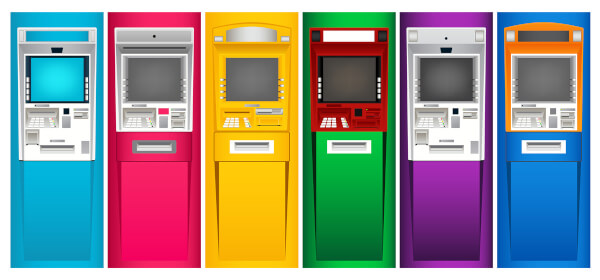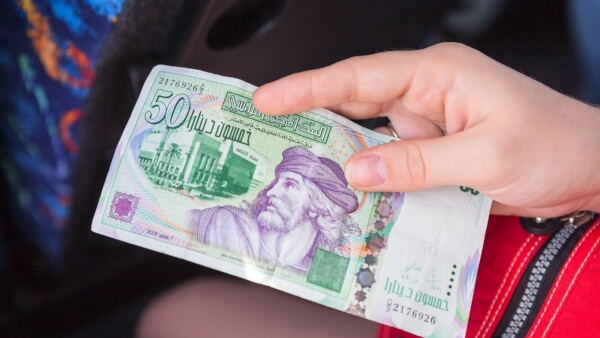Hays travel card review: features, fees and more
Read our Hays travel card review, covering exchange rates, limits, fees and benefits.

Traveling abroad? Your credit card can be a convenient solution when making purchases on the fly. It’s easy, fast and more secure than carrying a stash of foreign currency you don't quite have your head around. However, if you are not careful, you can soon rack up a lot of unwanted charges.
Here you'll get the nitty-gritty on international credit card fees, how you can avoid abusive currency conversions and trim down the costs. Then, you can decide if it's worth using your credit card abroad, or if you’re better off with an alternative such as the Wise travel money card that offers zero transaction fees.
You can use most credit cards overseas when shopping, dining out and more. Of course, this is assuming the store or place accepts your card. Basically, when you're abroad, you can use your credit card as you would in your own country. Even the contactless option will work if available.
You can also use your credit card to withdraw cash in most ATMs overseas. Although, make sure to keep your eye out for foreign transaction fees and currency conversion markups.
Depending on your location, cash may still be a primary form of money in many rural areas - especially if you’re traveling to an exotic destination. Even if you have a credit card, it is important to keep foreign cash on hand for small expenses and emergencies.
To get a precise idea of the costs of using your credit card abroad, you should first check if it’s provided by Mastercard, Visa, American Express or another provider. Although it could be issued by a bank, it, in turn, relies on companies such as those to process payments.
Before you travel, be sure to take a closer look at the fees your specific credit card provider may charge. All you need to do is visit their website or call the number on the back of your card and reach out to a live agent to find out more.
Basically, the main costs of using a credit card abroad are related to non-sterling transaction fees, cash withdrawal fees, currency conversion markups and interest charges.
Non-sterling transaction fees. You credit card will work with any foreign currency. However, when you make a purchase, your bank needs to convert it into pounds. The costs for performing this task are supposedly covered by a non-sterling transaction fee, which is usually between 2-3% of each purchase.
Cash withdrawal fees. Using a foreign ATM can equally be expensive. On top of the non-sterling transaction fee, you may also be charged a cash fee when withdrawing money. It commonly ranges between 2-5% or a minimum charge of £3 for each transaction. Keep in mind that the ATM provider may apply additional charges for their services as well.
Exchange rate markups. You can also be subject to an unfair exchange rate when your credit card company converts foreign currency into pounds. Most providers take the mid-market rate and apply a margin on top without telling you about it. In other words, you have no idea how much they are overcharging you by.
Interest charges. credit card companies can charge you very high interest if you don't pay back your statement in full. Your best approach to minimizing additional costs is to fully pay off your bill every month to avoid colossal interest rates.
Paying with your credit card in another country can seem straightforward before you factor in the charges. Let’s look at an example.
Let's say you pay a €200 hotel bill with an exchange rate of 1.1231 pounds to euro. This would cost you £178.07 before any fees, but that's not the real cost you’ll get if you pay with your UK credit card. In an hypothetical scenario, If you add up a 3% non-sterling transaction fee of £5.34, the total cost comes up to £183.41.
If you're abroad and need some extra cash, you can use an ATM and make a withdrawal with your credit card. However, this should only be done as a last resort since the costs are are usually not worth it. In some cases, there may be two or three additional fees.
Suppose you withdraw €200 from a foreign ATM at the exchange rate of 1.1231 pounds to euro. In addition to the 3% non-sterling transaction fee, you could be charged an additional 3% cash fee, costing you a total of £10.68 in charges. Your final hypothetical total cost is now £188.75. Plus, the cash machine owner may apply other charges.
Whether you're paying or withdrawing money abroad, the ATMs and credit card machines might offer you the option to use pounds rather than the local currency. This is called Dynamic Currency Conversion (DDC).
This may make understanding foreign currencies easier, but has a major drawback: you'll probably be charged a higher exchange rate by the firm handling the transaction. That's why it's better to use the local currency when offered a choice.
When you use your credit card to pay for your holiday, you may find a surcharge at the checkout. It may seem like another unnecessary charge, but it actually provides protection by the Consumer Credit Act, so it's something worth considering.
If the cost of your purchase ranges between £100 and £30,000, the Consumer Credit Act holds both the credit card provider and the retailer liable for refunding you when something goes wrong.
Some other perks your credit card company may award you include cash back percentages, bonuses or points. Keep in mind, to avoid interest charges, you should pay off all of your credit card bills in full every month.
Using your credit card to pay for expenses abroad is convenient. However, there are also downsides. To help you decide, here are some of the advantages and disadvantages of using credit cards overseas.
Pros:
Cons:
If you decide against using your credit card abroad, you can use a variety of other alternatives instead. You could use cash, debit cards, prepaid cards, travelers’ cheques or a combination of those. Compare your travel money options to found out what would be the best way to spend money abroad for you.
In some cases, you may be better off getting a multi-currency card. For example, with a Wise borderless card you have no transaction fees and low exchange rates. It’s free to pay with any currency you hold in your account and to withdraw up to £200 per month.
Obviously, you may not feel like worrying about money during your holiday. However, a few simple precautions can ensure a smooth trip and prevent unwanted surprises when you arrive back home.
In conclusion, a credit card may be a handy solution when traveling abroad. Just be sure to explore all your options and educate yourself about international fees and more.
This publication is provided for general information purposes only and is not intended to cover every aspect of the topics with which it deals. It is not intended to amount to advice on which you should rely. You must obtain professional or specialist advice before taking, or refraining from, any action on the basis of the content in this publication. The information in this publication does not constitute legal, tax or other professional advice from TransferWise Limited or its affiliates. Prior results do not guarantee a similar outcome. We make no representations, warranties or guarantees, whether express or implied, that the content in the publication is accurate, complete or up to date.
*Please see terms of use and product availability for your region or visit Wise fees and pricing for the most up to date pricing and fee information.
This publication is provided for general information purposes and does not constitute legal, tax or other professional advice from Wise Payments Limited or its subsidiaries and its affiliates, and it is not intended as a substitute for obtaining advice from a financial advisor or any other professional.
We make no representations, warranties or guarantees, whether expressed or implied, that the content in the publication is accurate, complete or up to date.

Read our Hays travel card review, covering exchange rates, limits, fees and benefits.

Read our TUI travel card review, covering exchange rates, limits, fees and benefits.

Read our guide on ATMs abroad including networks, locations and tips on how to avoid ATM fees abroad.

If you’re a Barclays customer, have a Barclaycard or hold a Barclays debit card, get familiar with fees and how to use your card abroad in our article.

What is the best currency to take to Cape Verde? Read our guide on currency in Cape Verde, accepted payment methods and more.

What is the best currency to take to Tunisia? Read our guide on currency in Tunisia, accepted payment methods and more.